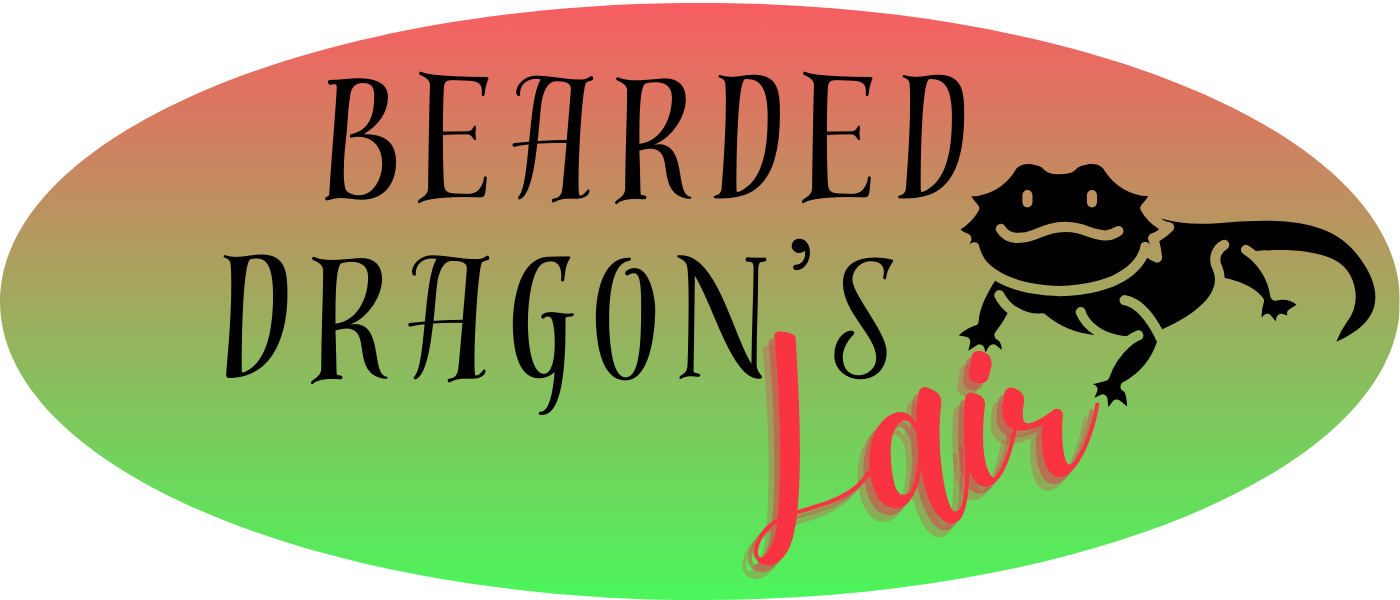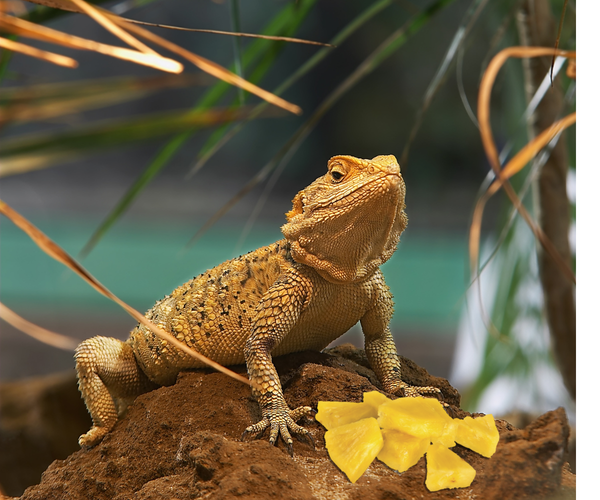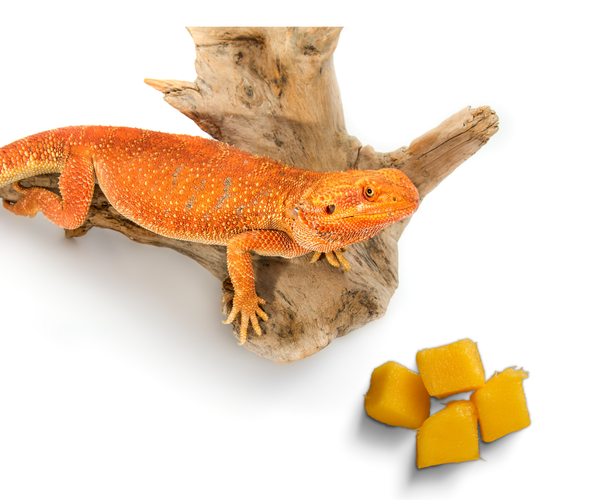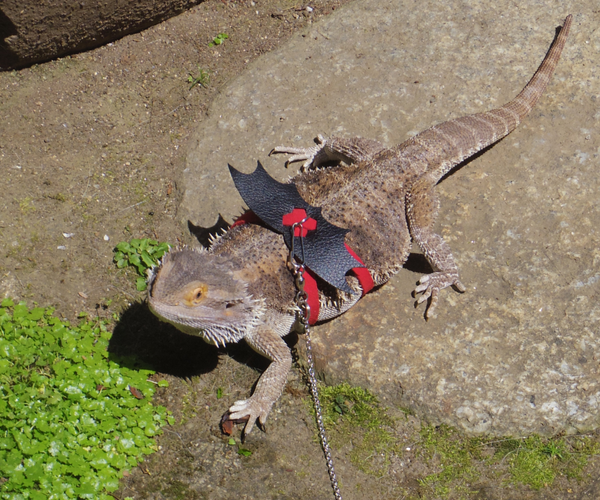Can Bearded Dragons Eat Apples?
Proper preparation and moderation are key to avoiding any health risks associated with feeding apples.
Bearded dragons are popular pets known for their docile nature and unique appearance. As a bearded dragon owner, understanding the dietary needs of your scaly friend is crucial for its health and happiness. One common question that arises is whether bearded dragons can eat apples. This article delves into the suitability of apples as a part of a bearded dragon's diet.
Key Takeaways:
- Bearded dragons can eat apples in moderation as part of a balanced diet.
- Apples should be served properly prepared and without seeds to avoid health risks.
- Understanding the nutritional content and potential hazards of apples is essential for bearded dragon owners.
The Nutritional Profile of Apples
Apples are a nutritious fruit that can offer health benefits to humans, but what about bearded dragons? These fruits are a source of vitamins, such as vitamin C and a variety of B vitamins, which are beneficial for maintaining a healthy immune system and metabolism. Apples also contain dietary fiber, which can aid in digestion. However, the sugar content in apples is something to be mindful of when feeding them to your bearded dragon.
Preparing Apples for Your Bearded Dragon
When it comes to feeding apples to your bearded dragon, preparation is key. Apples should be washed thoroughly to remove any pesticides or chemicals from the skin. It's also important to peel the apples, as the skin can be tough for bearded dragons to digest. The fruit should be cut into small, manageable pieces to prevent choking hazards, and most importantly, all seeds must be removed as they contain cyanide, which is toxic to bearded dragons.
Frequency and Portion Size
Moderation is the golden rule when incorporating apples into your bearded dragon's diet. Due to their sugar content, apples should be considered a treat rather than a staple food. A small piece of apple once a week is a good guideline to follow. This will prevent potential health issues such as obesity and nutritional imbalances that can arise from overfeeding sugary fruits.
Potential Health Benefits
Incorporating apples into your bearded dragon's diet can have potential health benefits when done correctly. The fiber in apples can contribute to a healthy digestive system, while the vitamins can support the immune system. The hydration provided by apples is also beneficial, especially for dragons that are reluctant to drink water regularly.
Risks to Consider
While apples can be a healthy treat, there are risks associated with feeding them to bearded dragons. The high sugar content can lead to obesity and dental problems if fed in excess. Additionally, the acidity of apples can potentially cause stomach upset in some dragons. It's important to observe your pet for any adverse reactions after consuming apples.
Alternative Fruits for Bearded Dragons
If you're looking to diversify your bearded dragon's diet with fruits, there are several alternatives to apples. Berries, such as strawberries and blueberries, are lower in sugar and can be a healthier option. Melons, like watermelon and cantaloupe, provide hydration and are also enjoyed by bearded dragons. Remember to serve all fruits in moderation and properly prepared.
The Importance of a Balanced Diet
A balanced diet is crucial for the health of your bearded dragon. In addition to fruits, their diet should primarily consist of leafy greens and vegetables, with the occasional inclusion of insects for protein. Variety is key to providing all the necessary nutrients and preventing dietary deficiencies.
Understanding Your Bearded Dragon's Needs
Every bearded dragon is unique, and their dietary needs can vary based on factors such as age, size, and health. Younger dragons require more protein for growth, while adults need a diet higher in vegetables. It's important to tailor your dragon's diet to their specific needs and consult with a veterinarian if you have any concerns.
Safe Feeding Practices
Safe feeding practices are essential when introducing new foods to your bearded dragon's diet. Start with small amounts to monitor for any negative reactions. Ensure that all food items are appropriately sized to prevent choking and that your dragon has access to fresh water at all times.
Engaging with the Bearded Dragon Community
For additional support and advice, engaging with the bearded dragon community can be invaluable. Online forums, social media groups, and local reptile clubs are great resources for sharing experiences and learning from other bearded dragon owners.
Summary
Bearded dragons can safely enjoy apples as an occasional treat within a well-rounded diet. Proper preparation and moderation are key to avoiding any health risks associated with feeding apples. By understanding the nutritional benefits and potential hazards, you can make informed decisions about your bearded dragon's diet and ensure their long-term health and happiness.
FAQ Section
Q: How often can I feed my bearded dragon apples? A: Apples should be fed in moderation, ideally as a small treat once a week. This helps prevent any health issues related to the fruit's sugar content.
Q: Do I need to peel apples before feeding them to my bearded dragon? A: Yes, it's recommended to peel apples to make them easier for your bearded dragon to digest. Additionally, ensure that all seeds are removed to avoid toxicity.
Q: Are there any fruits that are better for bearded dragons than apples? A: While apples can be a healthy treat, other fruits like berries and melons may be lower in sugar and acidity, making them a potentially better option for your bearded dragon. Always serve fruit in moderation and as part of a balanced diet.




